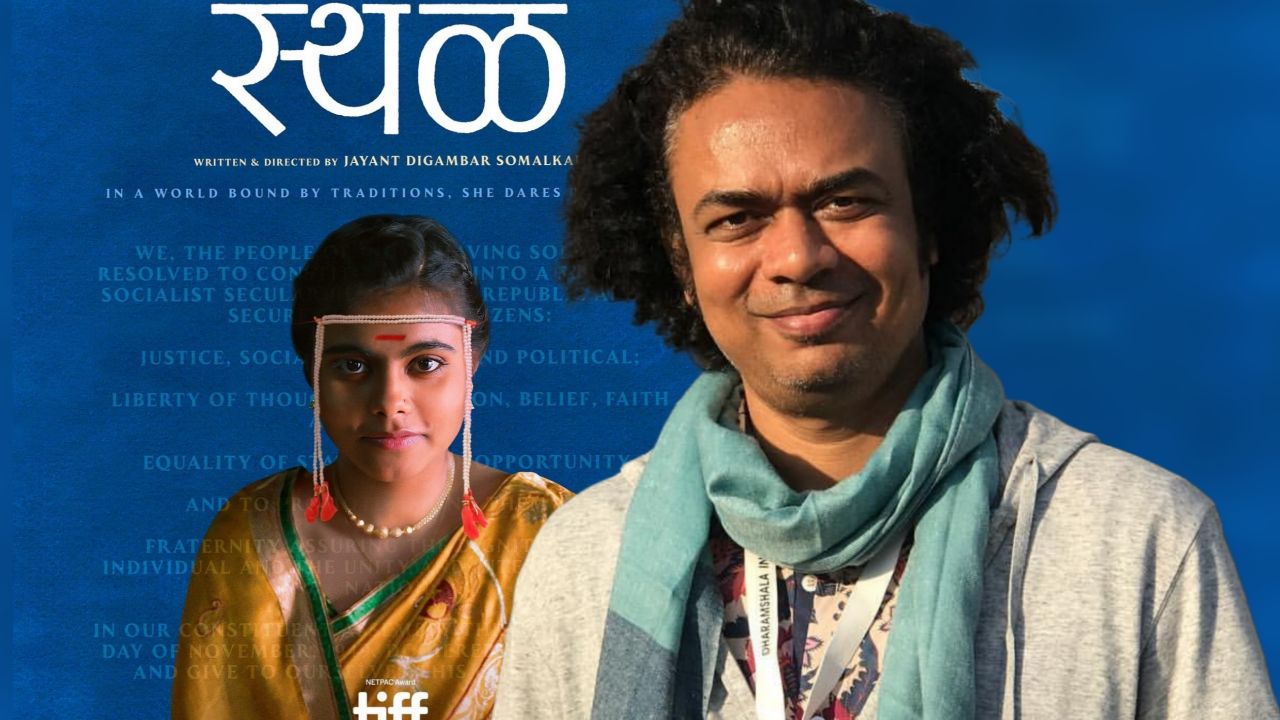
Jayant Digambar Somalkar's Sthal had its world premiere in 2023 at the Toronto International Film Festival. From there, it traveled to other prestigious festivals, such as the Cairo International Film Festival and the Durban International Film Festival, before landing in Indian theaters on March 7, 2025, just a day before International Women's Day. On October 10, 2025, Sthal made its digital debut on ZEE5, a day celebrated internationally as World Mental Health Day. What's more, even Karwa Chauth was observed in India on that same day. If you watch Sthal, you'll understand the significance of having both World Mental Health Day and Karwa Chauth coincide. You'll also understand why I'm smiling as I write these words.
Over an hour-long conversation, I spoke with Jayant about Sthal, feminism, society, his cast, and the effects of certain mainstream Bollywood romances on the public at large. Below are edited excerpts from that conversation; You can watch the whole conversation at the bottom of this article.
V: It becomes very evident from the beginning that this movie is deeply personal for you. I believe that for a first-time filmmaker, the more personal the film, the better it becomes. What about this subject motivated you to turn it into your debut feature? As a filmmaker, you might have had other issues or subjects you wanted to explore, so why Sthal?
J: As you said, it's a personal experience. I have two sisters and five cousins, and all of them had arranged marriages. So I've been witnessing this matchmaking process since childhood. It's called baithak in Marathi.
Why this film? Because a few years back, I was at one of my cousin's baithaks. Even though I'd seen many baithaks growing up, I had never questioned the tradition before. But about six or seven years ago, while attending that particular baithak, I found the whole process — asking the bride questions and then talking about her outside the house — very offensive and hurtful.
When I came back to Mumbai, I thought, "Let's write something. Let's make something on this issue." I wrote the script in one go, within a month in 2017. But since I was busy with another project, this one kept getting delayed. I finally shot the film in 2022. So that incident became the seed of Sthal.
V: It's almost inevitable that people will compare Sthal to The Great Indian Kitchen. How did Jeo Baby's drama influence your film?
J: As I mentioned, I wrote Sthal before The Great Indian Kitchen was released. But I watched the film later and really liked it. Though both films share a similar core theme, their treatment and characters are very different. I definitely felt inspired — and perhaps even more responsible — to make this film.
V: I think the emotions in Taranath's eyes (he plays Daulatrao) are especially piercing in the scene where a man tells him that a family will come to see Savita on Sunday. I loved how he doesn't immediately agree to the meeting; he asks whether it can be rescheduled, and through his eyes, we can see his empathy for his daughter. He regrets that she'll miss her exams. Yet his conditioning makes him prioritize the meeting with the potential groom over her studies. I think this scene holds the key to your film because it shows that you're not criticizing individuals but the institution that has shaped people like Daulatrao. Was your script this layered from the beginning, or did it evolve through multiple drafts?
J: I was reading your review yesterday, and it made me happy that you noticed those layers; they came out organically. Honestly, I was not consciously thinking of all these things while writing. As I mentioned, I've seen this life up close, so the process felt very natural.
When I was writing Sthal, many things just flowed. I still sometimes can't believe I made this film. I wrote it in a month, but that one month represented my whole life — my experiences and perspectives came through naturally because I've lived this conditioning.
I could say that I paid deliberate attention to the layers, but that would be a lie. Characters like Savita, Daulatrao, and Lilabai aren't inventions; they're an amalgamation of people I've met or observed. While writing, you see their faces, recall the moments you shared, and those memories shape the characters. In that sense, everything in the film is a replication of life.
You can watch the complete conversation below, and also read our Sthal Review.
Get all latest content delivered to your email a few times a month.
Bringing Pop Culture News from Every Realm, Get All the Latest Movie, TV News, Reviews & Trailers
Got Any questions? Drop an email to [email protected]
Information you can trust:
Reuters, the news and media division of Thomson Reuters, is the world’s largest multimedia news provider, reaching billions of people worldwide every day, Sign up for our free daily newsletter: [email protected]